The Chesapeake Bay is the nation's largest estuary. Woven together by rivers, streams, wetlands, and coastal waters, its 64,000-square-mile watershed is home to nearly 20 million people and 3,600 species of plants and animals. Learn more about it in our Ask an Expert video series.
The Chesapeake Bay Foundation gives permission to academic institutions for these webinars to be viewed for educational purposes.
-
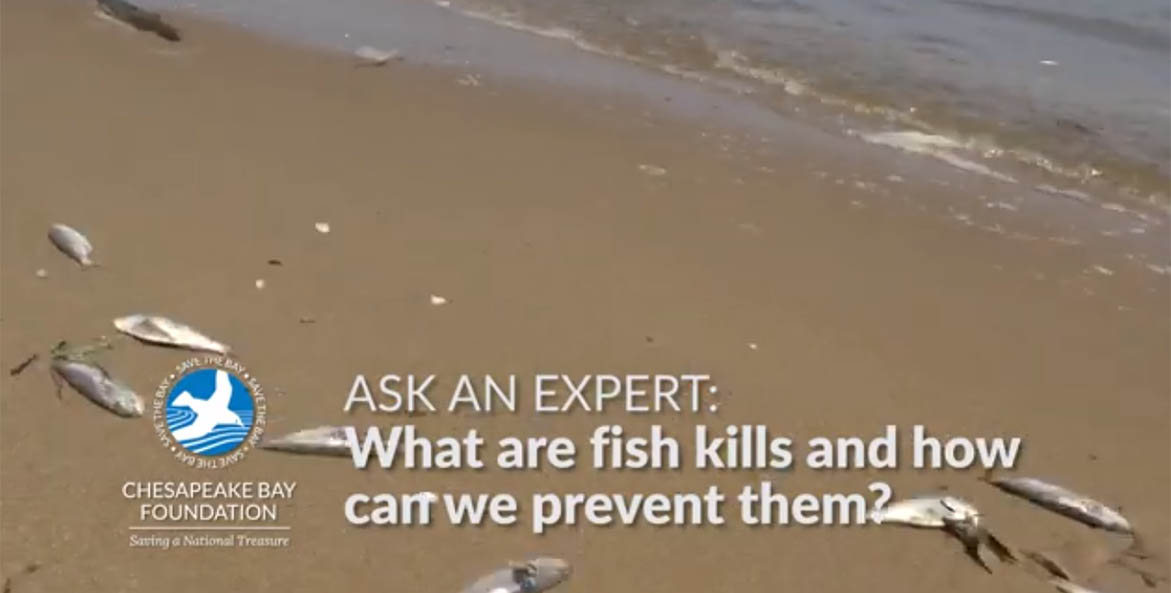
Ask an Expert: What Is a Fish Kill?
14 Aug 2020 Episode 10 | 00:03:23Why do dozens, hundreds, or sometimes even thousands of fish wash ashore dead? What types of environmental factors can cause these mass die-offs? How can we prevent them from happening?
-
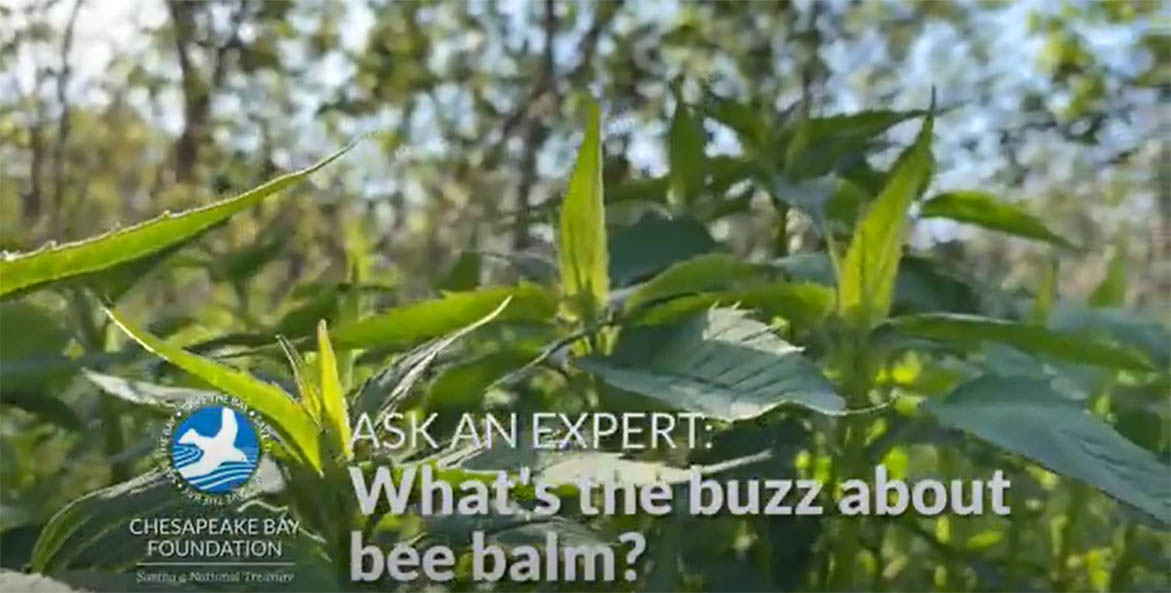
Ask an Expert: What's the Buzz About Bee Balm?
12 May 2020 Episode 9 | 00:02:05What native plant is medicinal, can be used as a tasty tea, is good for the environment, and has beautiful flowers that attract bees and butterflies? Find out why bee balm could be a great addition to your garden with CBF's Jay Ford.
-
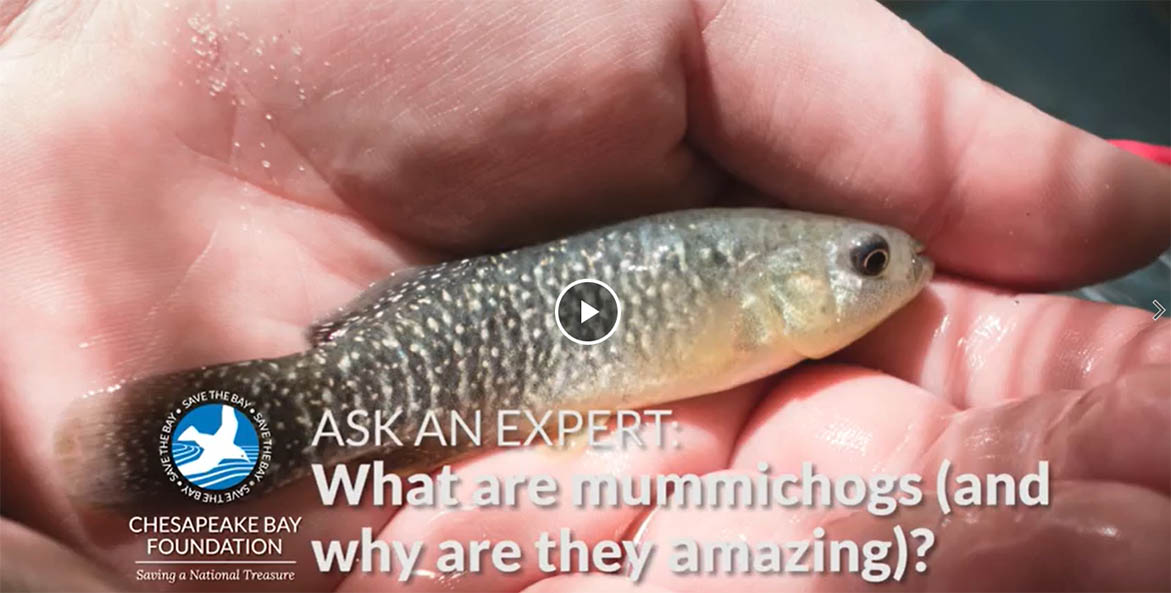
Ask an Expert: What are Mummichogs (and Why are They Amazing)?
06 May 2020 Episode 8 | 00:06:16Believe it or not, mummichogs were the first fish sent into space. This "mud minnow," common in brackish marshes, lives an amazing secret life serving science, wildlife, and fishermen. Learn more from Chris Moore, CBF's Senior Regional Ecosystem Scientist.
-
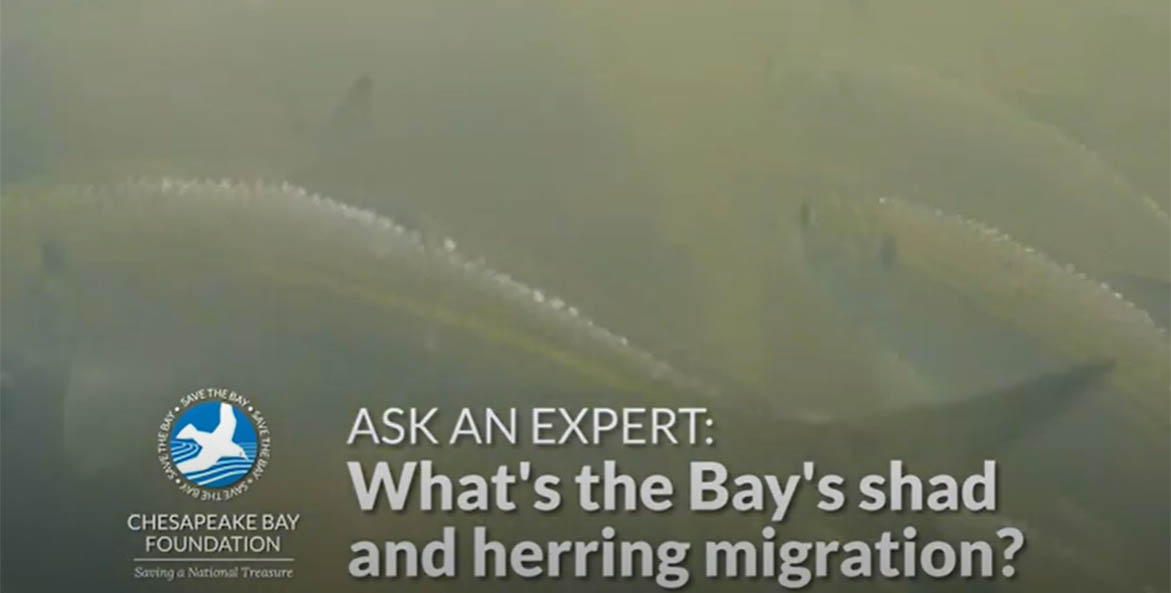
Ask an Expert: What's the Bay's Shad and Herring Migration?
22 Apr 2020 Episode 7 | 00:02:40Where do shad and herring lay their eggs after migrating from the ocean? Chris Moore, CBF's Senior Regional Ecosystem Scientist, explores the remarkable spring shad and herring migration.
-
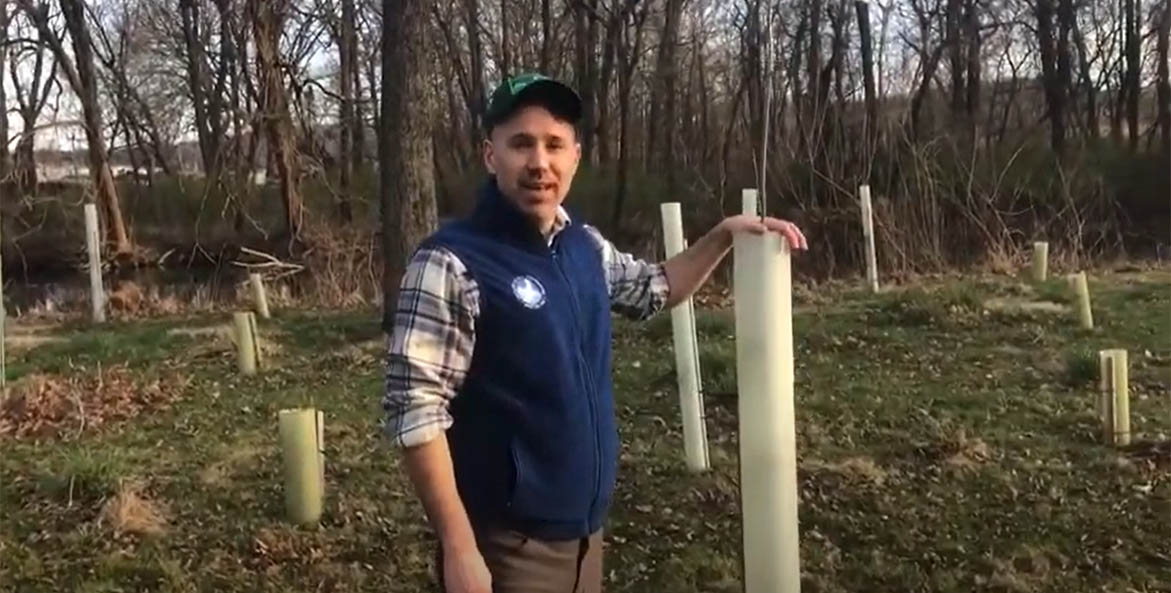
Ask an Expert: Why are Trees VIPs (Very Important Plants)?
14 Apr 2020 Episode 6 | 00:04:53How do trees battle climate change? Can trees reduce flooding? And how do trees lead to healthier rivers and streams? Join Harry Campbell, CBF's Science Policy and Advocacy Director in Pennsylvania, as he explores why trees are VIPs (Very Important Plants).
-
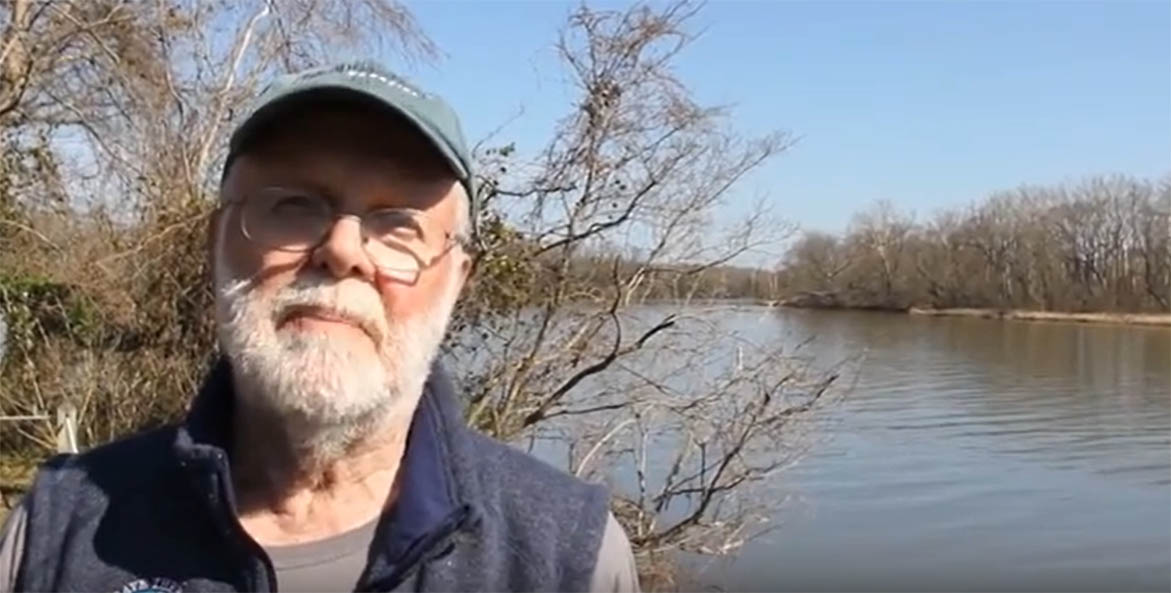
Ask an Expert: Why Do Ospreys and Eagles Come to the Bay?
09 Apr 2020 Episode 5 | 00:05:32Why do ospreys return to the Bay and its rivers every spring? How do they use aerodynamics while fishing? Can you tell a juvenile bald eagle from an adult? Retired Senior Naturalist John Page Williams explores the habits of these wonderful watershed birds.
-
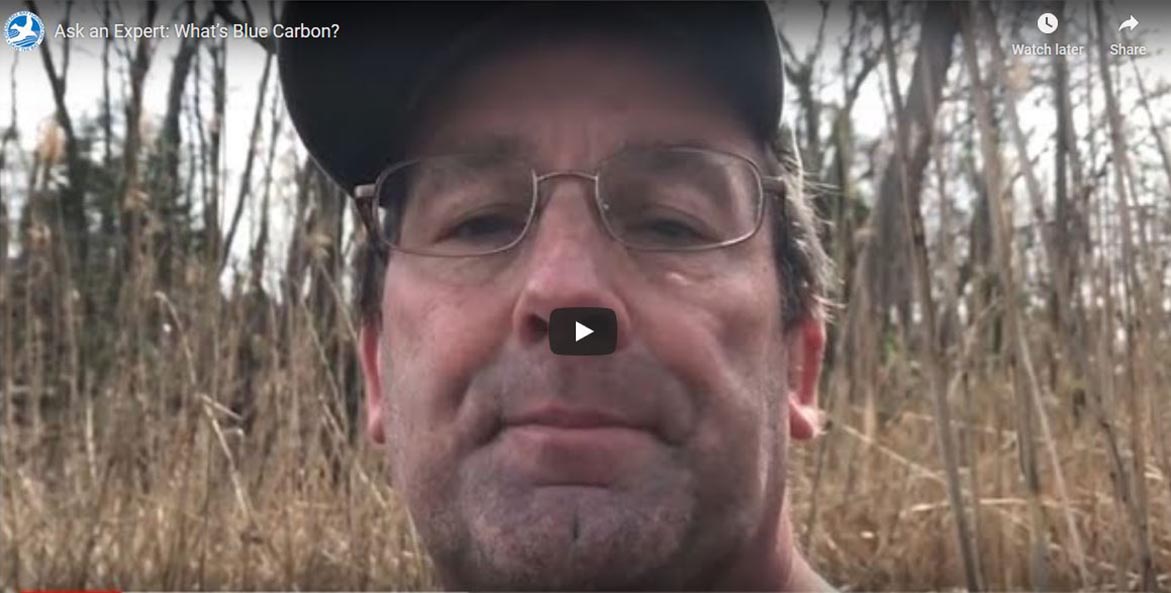
Ask an Expert: What's Blue Carbon?
27 Mar 2020 Episode 4 | 00:05:28Why do marshes sometimes smell like rotten eggs? How do they migrate as sea levels rise? And what does it all mean for the Bay in a changing climate? CBF Maryland Senior Scientist Doug Myers digs into the muck to explain the mysteries of 'blue carbon.'
-
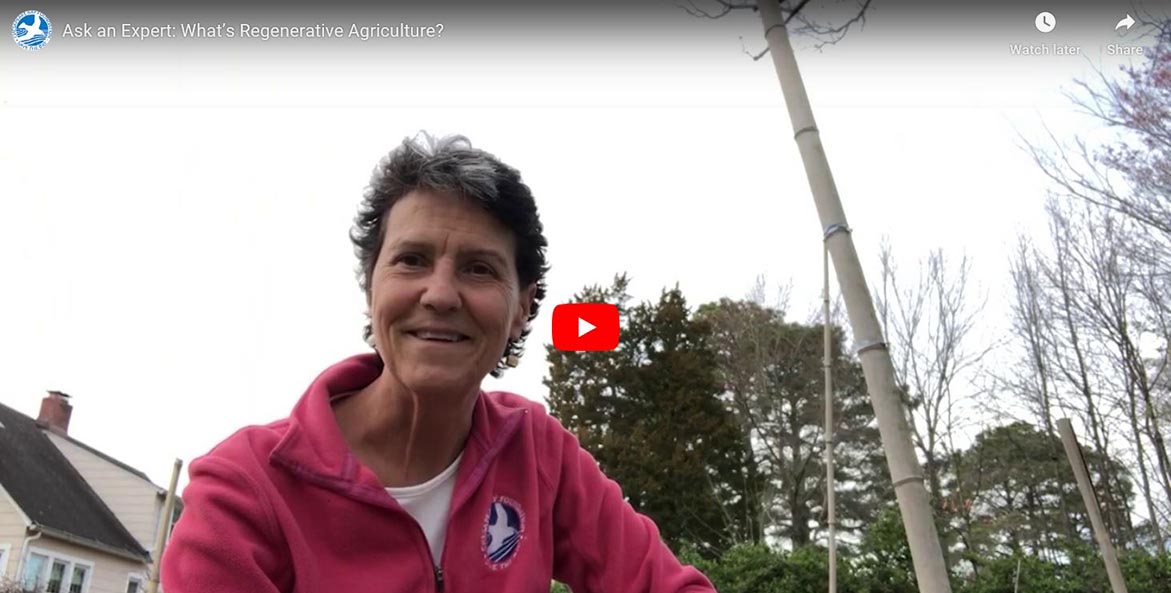
Ask an Expert: What's Regenerative Agriculture?
27 Mar 2020 Episode 3 | 00:05:02We've heard about growing sustainable food, but what if farmers could go beyond preserving the environment and actually improve it? CBF's Director of Science and Agricultural Policy Beth McGee explores the pollution-reducing, carbon-capturing promise of regenerative agriculture—from her own backyard—and shares how you can help.
-
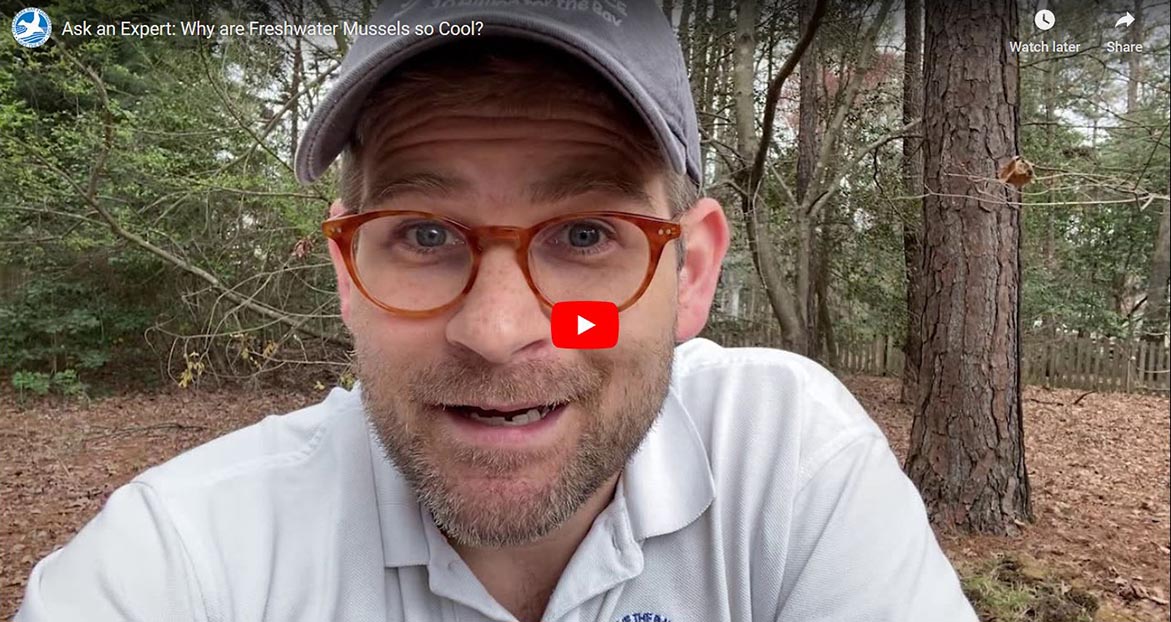
Ask an Expert: Why are Freshwater Mussels so Cool?
27 Mar 2020 Episode 2 | 00:07:06How do freshwater mussels trick fish into helping them out? Why are they good for streams and rivers? How many species of freshwater mussels are there in the Bay watershed? CBF's Virginia Senior Scientist Joe Wood shares why he loves these amazing mollusks–and why you should too.
-
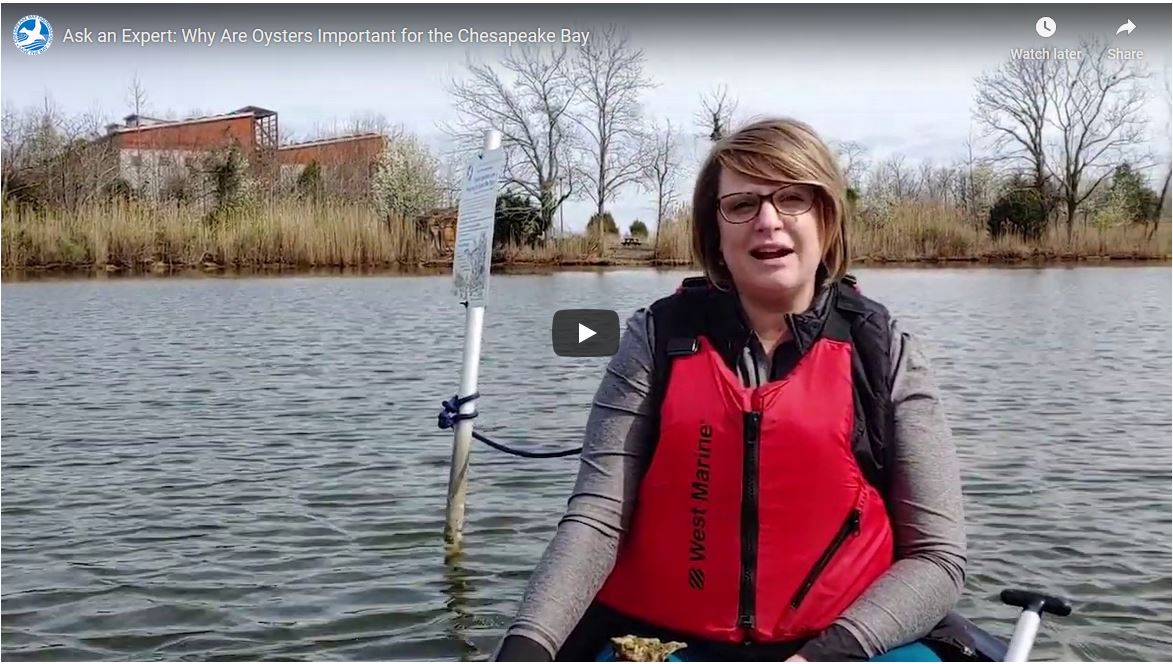
Ask an Expert: Why are Oysters Important for the Chesapeake Bay?
25 Mar 2020 Episode 1 | 00:06:46Why is an oyster hard to shuck? How do young oysters choose their homes? What happens when an oyster filters water? CBF’s Maryland Fisheries Scientist Allison Colden gets up close and personal with the Bay’s famous bivalve.


